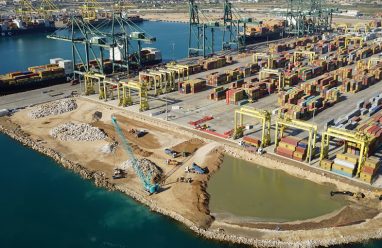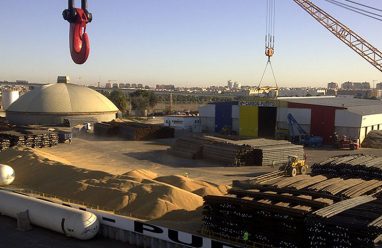The aim of the project was to determine the optimal configuration of an SSS line dedicated to refrigerated traffic, connecting the Iberian peninsula with Poland and countries located in its area of influence. This line would integrate transport and logistics services by implementing a buffer warehouse in the unloading area of the port, enabling the quick, efficient redistribution of freight and preventing a drop in prices resulting from excess supply.
In terms of methodology, the initial phase of the project consisted of analyses of supply and demand. First, from a supply-side perspective, the analysis focused on all the agents involved in the transport, as well as the existing transport chains, performing a SWOT analysis comparing road-only chains to maritime transport. Furthermore, from a demand-side perspective, a study of trade and transport flows was carried out, as well as a field work campaign focusing on the main shippers in the sector, which helped identify the key determinants of modal choice in the transport of citrus fruits. Mathematical modelling of these parameters enabled an estimation of the possible modal transfer for the optimal service defined by the user preferences identified during the field work.
In addition, a financial viability analysis of the SSS service and the logistics warehouse located in Poland was carried out, based on the demand estimates produced and the cost and revenue estimates modelled as part of the project






